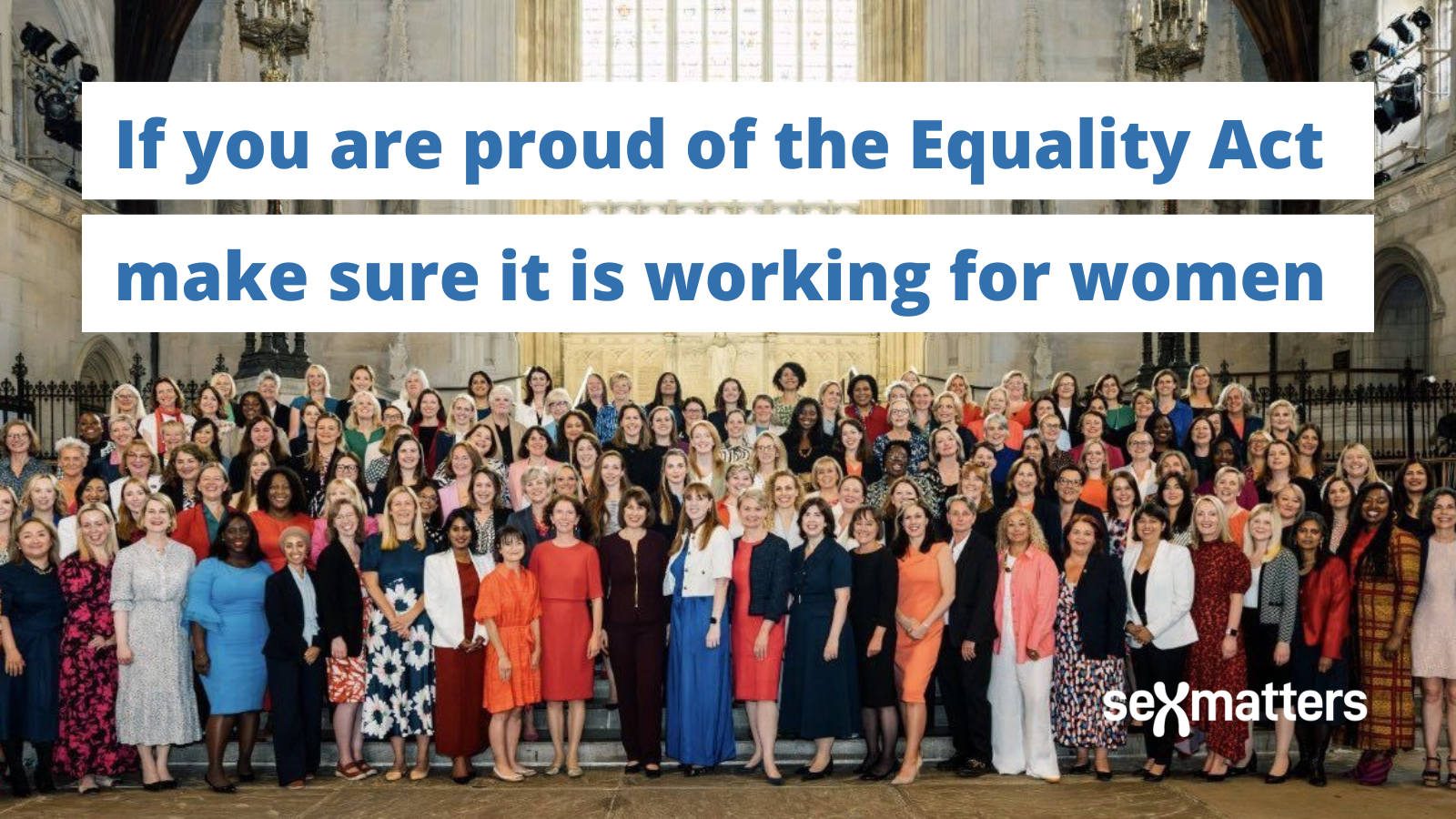Anneliese Dodds must listen to women

Anneliese Dodds, the Minister for Women and Equalities, has said in response to a written question asking whether the government plans to amend the legal definition of what a woman is:
“We are proud of the Equality Act and the rights and protections it affords women. The Government does not plan to amend legal definitions in the act.”
Hundreds of women are coming to Parliament on Wednesday on a mission to change her mind as part of the Stand up for single-sex services campaign.
They are going to tell her, and other MPs, how the Equality Act is failing to protect women, and how men who claim to be women are gaining access to women’s spaces, services and sports.
These men are demanding and getting women’s rights. They are competing in women’s sports and being housed in women’s refuges and prisons. A man who claims to be a woman was appointed to lead Edinburgh Rape Crisis Centre, forcing staff and clients to pretend he is a woman. Men who identify as women are allowed to be Girlguiding leaders, to use women’s showers at the gym and to be employed in jobs where they strip-search women. Lesbians are told they cannot meet without including men who identify as women.
This is being allowed to happen because of confusion about the interaction between the Gender Recognition Act and the Equality Act. It could be fixed with a one-line amendment, introduced through secondary legislation, using a power provided for by the last Labour government for exactly this purpose.
The law is not working for women
Dodds is right to be proud of the Equality Act, and the Sex Discrimination Act 1975 that came before it. But she should be concerned about whether it is working in practice.
The Sex Discrimination Act challenged centuries of discrimination, prejudice and sexism against women. It sought to end the routine practices of paying women less, denying them opportunities and expecting them to put up with sexual harassment at work.
But it is naive to think that just because laws are passed, rights will be upheld in practice.
In 1975 Labour peer Baroness Summerskill argued for the Sex Discrimination Act to be passed, pointing out that for 55 years the 1919 Sex Disqualification Act, which gave women entry to the professions, had been treated “with contempt” by the the medical and legal professions, the Civil Service and the church. She said:
“I am hoping that this little Bill will help to create a climate of public opinion. Meanwhile, women must be vigilant, for I expect every manœuvre and trick to be deployed to evade the provisions of this Bill, for there are those who are determined to cheat women, just as we have been cheated since the 1919 Sex Disqualification (Removal) Act.”
She told the House of Lords how medical schools had been limiting the intake of women using quotas and hiking A-level grade requirements for girls.
“Headmistresses were writing to us saying that they had girls with brilliant brains and longing to do medicine, but they could not get into medical schools because it was said there was no room.”
The centuries of male dominance and sexism that the Sex Discrimination Act sought to combat did not suddenly vanish with the passing of the law. There continue to be men determined to cheat women and to harass, belittle and abuse them. The #MeToo movement is still exposing this more than 50 years later.
Now girls are told to bite their tongues and “be kind”. They are told to accept and celebrate the sexist idea that men who wear makeup, have long hair and wear dresses – and worse still, who do this as a sexual fetish – are women, and that women and girls have no right to their own privacy, spaces, sports, data or language.
The Equality and Human Rights Commission has since 2010 encouraged service providers to do something that looks very like what Baroness Summerskill described as tricking and cheating women and girls, by saying that they are offering single-sex services and spaces and then admitting men who want to appropriate those services and spaces. For many women, this causes trauma; others avoid the risk by self-excluding from services that they may desperately need.
Employers routinely discriminate against women who speak clearly about this. Dozens of women have crowdfunded over £2 million between them over the past few years to bring legal cases to challenge this discrimination. Many more women are frightened and silenced, or have lost work.
As Baroness Summerskill said, women must be vigilant.
If Anneliese Dodds is proud of the political heritage of the feminists who came before her, she should listen to the women and men who are coming to Parliament on Wednesday. They will tell her that the law is not working. If she wants to live up to the legacy of the brave women who fought for women’s rights, she needs to listen and to act.
